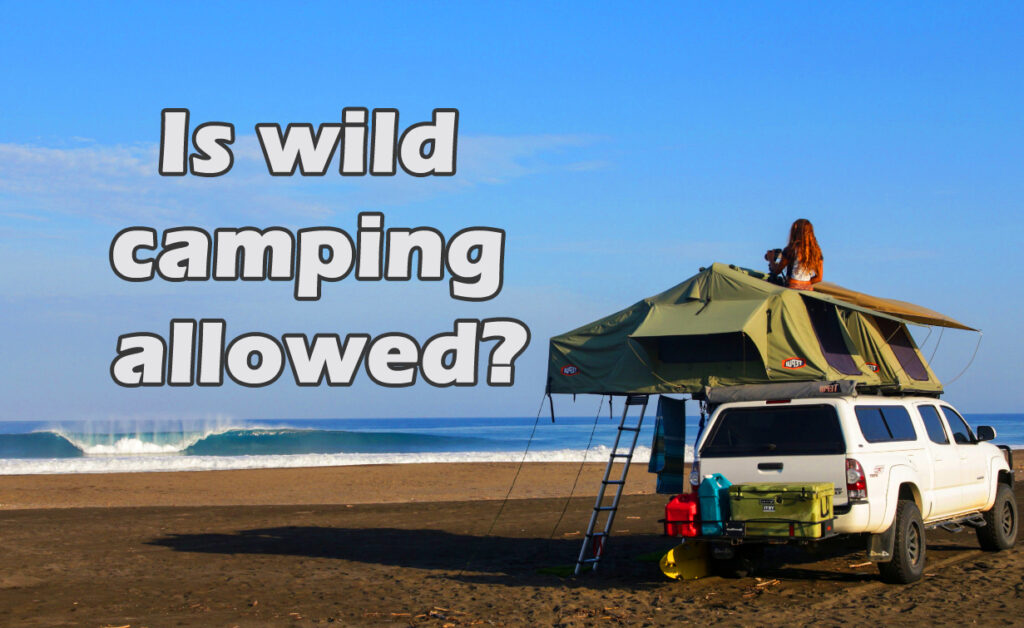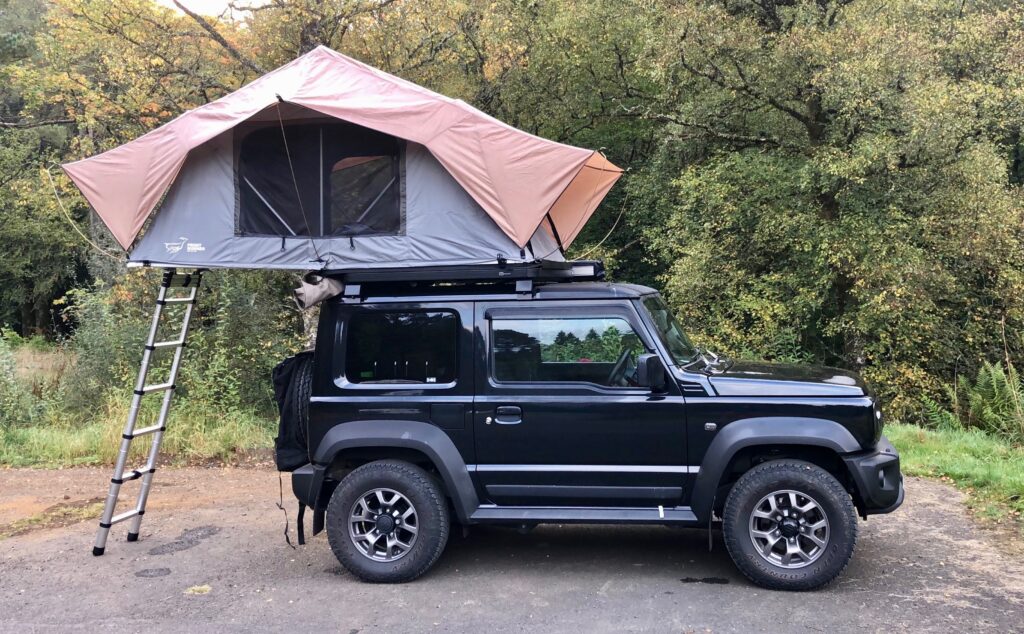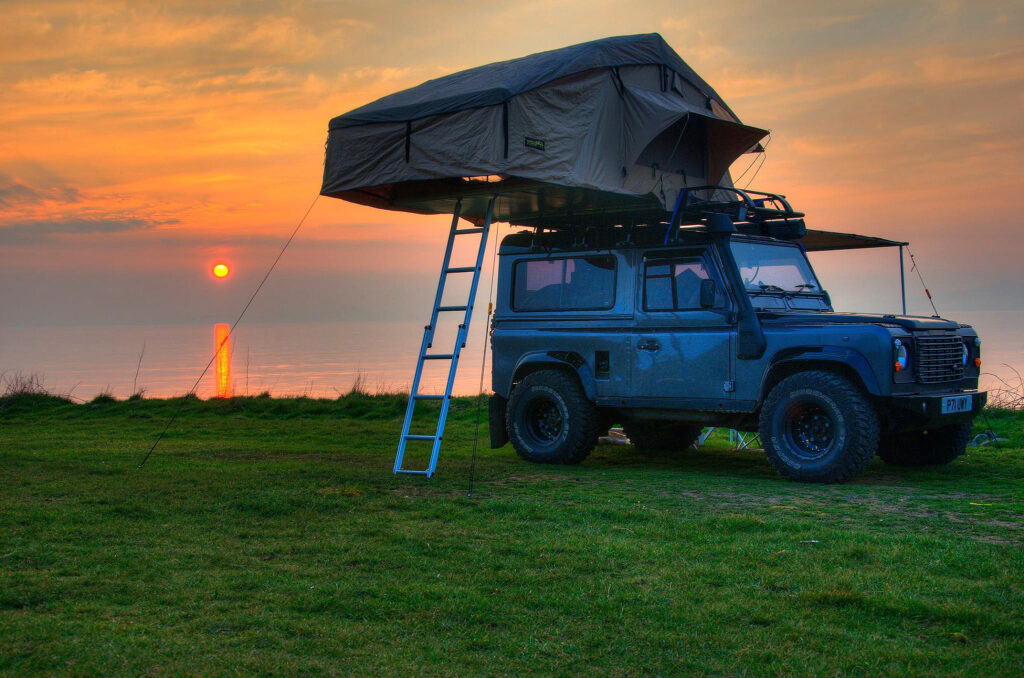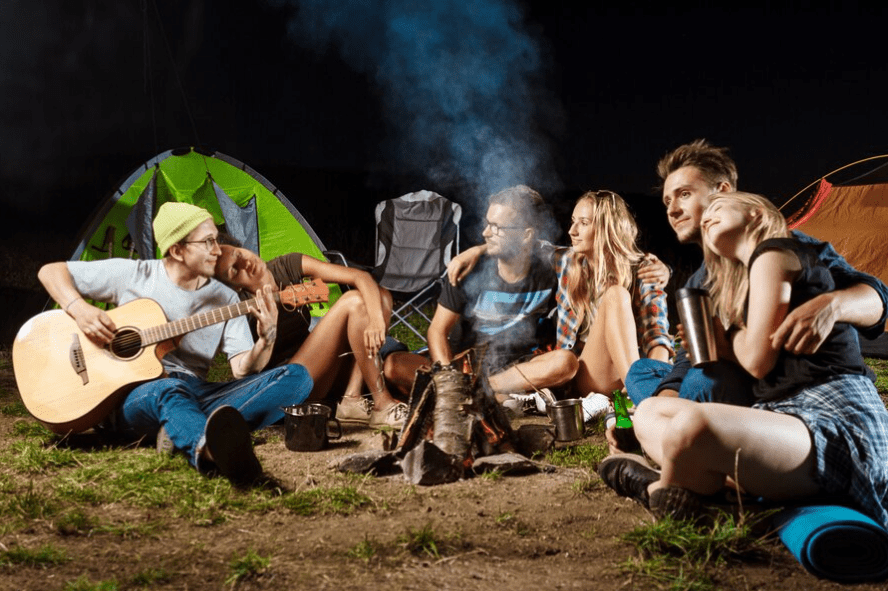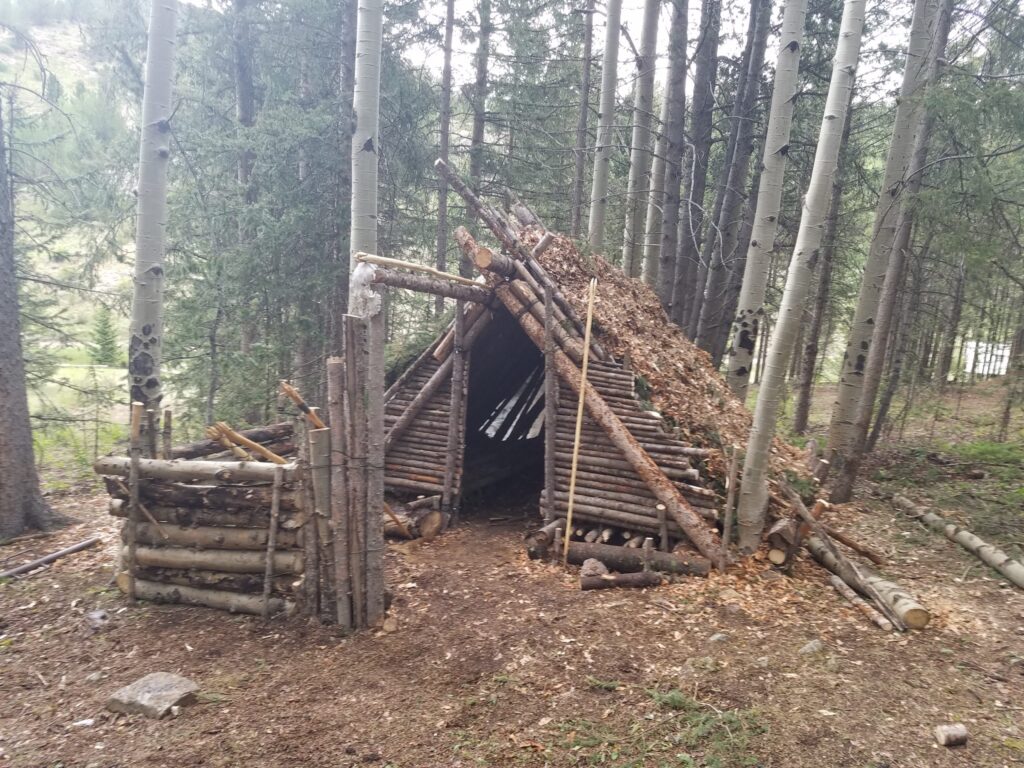Worldwide, rooftop tents have become an essential piece of camping equipment. Whether you’re driving a Subaru Outback, a 4×4, or an SUV, a rooftop tent is the ideal road trip buddy. Sturdy and easy to access, it takes a few minutes to set up, unlike the classic tent.
Besides the quick setup, you wake fresh and ready for your next adventure thanks to the built-in memory foam pad.
Due to the rising popularity of rooftop tents in North America, a lot of people have been asking: can I sleep in my rooftop tent anywhere in the US?
Where can I camp in a rooftop tent? Are rooftop tents allowed in Yellowstone? Which states allow the use of rooftop tents? If you’re interested in rooftop tent camping, then you’ve come to the right place.
In this post, we have assembled a list of places where you can park and use your rooftop tent. We will also discuss the rules and regulations governing the use of rooftop tents in the US. So, let’s jump in!
No time to read the entire article? Here is the quick answer to your question:
No, wild camping with a rooftop tent, a ground tent, or an RV is illegal in most states. There is a risk that you will have to pay a fine if you are caught wild camping. You should definitely find out before your trip where camping is allowed or where there are official campsites.
Table of Contents
Can I Sleep in My Rooftop Tent Anywhere in The US?
For years, we have come across campers in rooftop tents sleeping in crowded parking lots and rest areas. It’s hard to imagine getting a good night’s sleep while sleeping at or close to a noisy parking lot or rest area.
What you need to know is that as a camper with a rooftop tent, you cannot sleep anywhere in your rooftop tent. Even in cities where you find public parking lots, it’s illegal to set up your rooftop tent and go to sleep. This is because the authorities don’t want to create a shanty town situation where parking lots are all filled with campers and RVers.
We understand the thrill of sleeping under the stars and the appeal of wild camping. Also called freedom camping, wild camping is different from regular camping. Yes, it might seem as easy as trekking off into the woods or forest but don’t be fooled. It’s dangerous and can be illegal.
National Forests and Parks
In the US, people have it easy when it comes to wild camping. This is because you can wild camp in US National forests and grasslands unless instructed otherwise. However, there is a big difference between National Forests and National Parks.
Wild camping at National Forests is strictly controlled. This helps to preserve the environment, but Natural Forests have a wide variety of uses. As such, there are rarely rules restricting wild camping in National Forests in the US. However, if you plan on camping in a National Park, you’ve to reserve a campsite.
To make reservations and find more information on campsites, visit the National Park Service website. Simply search for the park you’re interested in and check the camping section.
If you’re looking for campsites or camping grounds in national forest land in the US, head to the Recreation.GOV website, then type your destination. You can also visit a state park’s website to find campsites in the state parks.
Travel Centers and Rest Areas
If you can get past the noise, then you can park and camp in your rooftop tent at travel centers and rest areas. Unfortunately, not all states allow you to camp overnight in these areas.
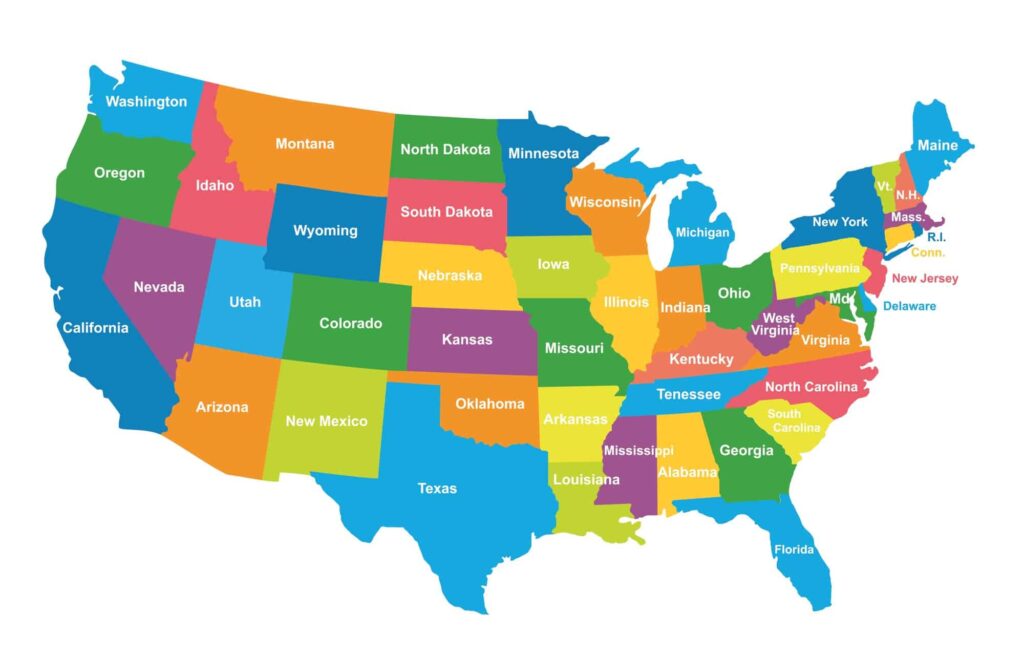
Most US states allow overnight parking in travel centers and rest areas. However, 22 states ban camping.
- California
- Delaware
- Florida
- Georgia
- Idaho
- Iowa
- Illinois
- Mississippi
- Missouri
- New Hampshire
- New Mexico
- New York
- North Dakota
- Ohio
- Oregon
- Pennsylvania
- South Dakota
- Utah
- Vermont
- Washington
- Wisconsin
- Wyoming
The states above do allow overnight parking. Some have no limit, while others have 6 to 24-hour limits. Additional states that allow parking at rest areas include:
- Alaska
- Alabama
- Arkansas
- Arizona
- Connecticut
- Colorado
- Hawaii
- Kansas
- Indiana
- Kentucky
- Maine
- Louisiana
- Maryland
- Michigan
- Massachusetts
- Minnesota
- Nebraska
- Montana
- New Jersey
- Nevada
- North Carolina
- South Carolina
- Oklahoma
- Rhode Island
- Texas
- Tennessee
- Virginia
- West Virginia
Public and Private Campgrounds
If noise is your biggest concern, then you can camp in public or private campgrounds. There are more than 1000 campgrounds across the US that offer free tent campsites. To find free campgrounds along your route, visit Campendium. Simply click the price filter and choose $0. Alternatively, you can check the “Always Show Free” box. This will bring you a lot of free campsites.
You can also use Allstays.com. The site has guides on where you can camp, including state parks, national parks, and more.
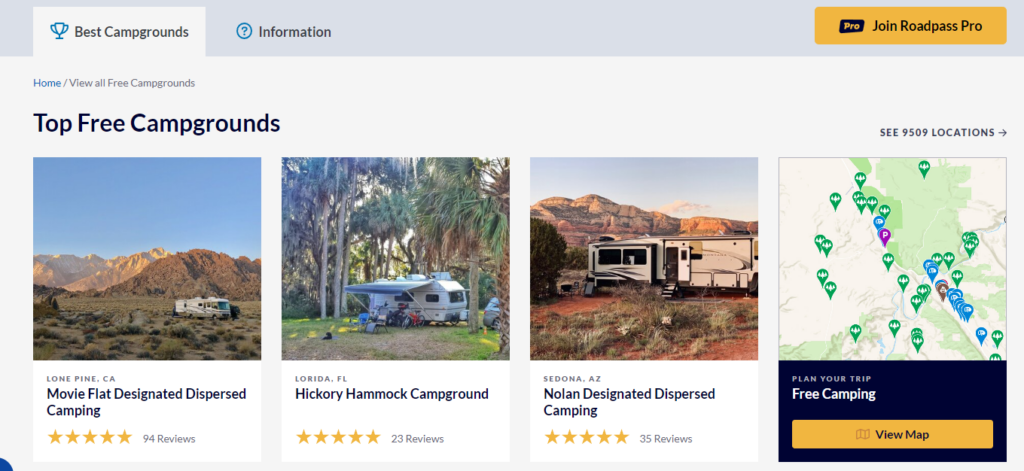
Rules for Rooftop Camping
Several rules apply to rooftop tent camping. Let’s take a look at rooftop tent camping rules.
- Always make sure to check the campsite, camping grounds, or park rules to confirm you can park your vehicle.
- Your vehicle should always have a roof rack that meets all of the weight requirements listed in your rooftop tent specifications.
- Respect other rooftop tent campers at the campgrounds, campsites, rest areas, and travel centers.
- Always be polite when chatting or handling any issues with other campers or authorities.
- Always clean up after camping. Never leave trash at the campsite, camping grounds, or rest areas. Throw your trash and recyclables into marked bins. This helps keep the camping grounds and campsite clean.
- Follow the “Pack In, Pack Out” rules. Basically, if you bring trash into the backcountry, such as beverage containers and food wrappers, make sure to carry them back out when you leave.
- Do not burn trash in the firepit. The firepit is for cooking food and burning wood. Burning trash in the firepit could get you kicked out of the campsite.
- Always play your car stereo at a reasonable volume and never too loud.
- Turn off your lights during the quiet hours of the night.
- Use the pathways and roadways to travel to and from the campground facilities, such as shelters, and bathrooms.
- Never cut through a neighboring campsite as this will disturb other campers, and you may damage fragile vegetation.
- If washing dishes, use a personal basin. Don’t use potable water taps or bathrooms.
- The same goes for laundry. Instead of washing your laundry in the bathrooms where space is limited, use your own tub, then dump the water down the outdoor sink.
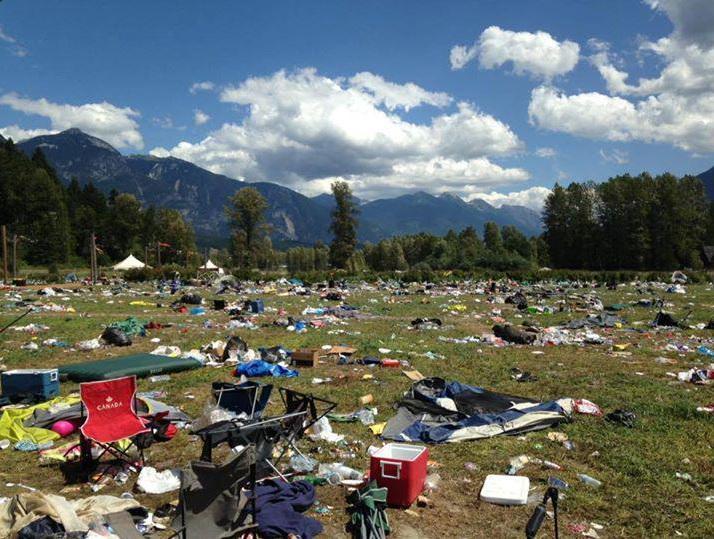
Every campsite, camping ground, or park has a specific arrival and departure time. You need to take note of your reservation confirmation of what time to arrive and depart. Some campsites do charge an extra fee for late check-in or departure.
If traveling with your dog, be aware that every campsite and camping ground has its own rules about dogs and other pets. Some sites do not even allow dogs while others have restrictions on certain dog breeds.
Always carry with you the Rabies Vaccination certificate. If a campsite or camping ground allows pets such as dogs, carry a doggie bag. keep your dog on a leash even though he or she is the friendliest dog in the world.
Final Words
Now that you know all the rules for rooftop tent camping, we recommend planning your road trip. Early preparations make for a better trip. Don’t forget to pack the essential supplies including doggie bags.
When on the road, expect the unexpected. In some areas, you may get cell phone reception while in others you may not. So, invest in a satellite phone and always let your family members or trusted friends know where you’re and where you’ll be spending the night.
Anything can happen so you will want to have plans A, B, C, and more. Lastly, make sure your vehicle is up to date. That includes your vehicle’s registration, tags, engine, tire, and others.

